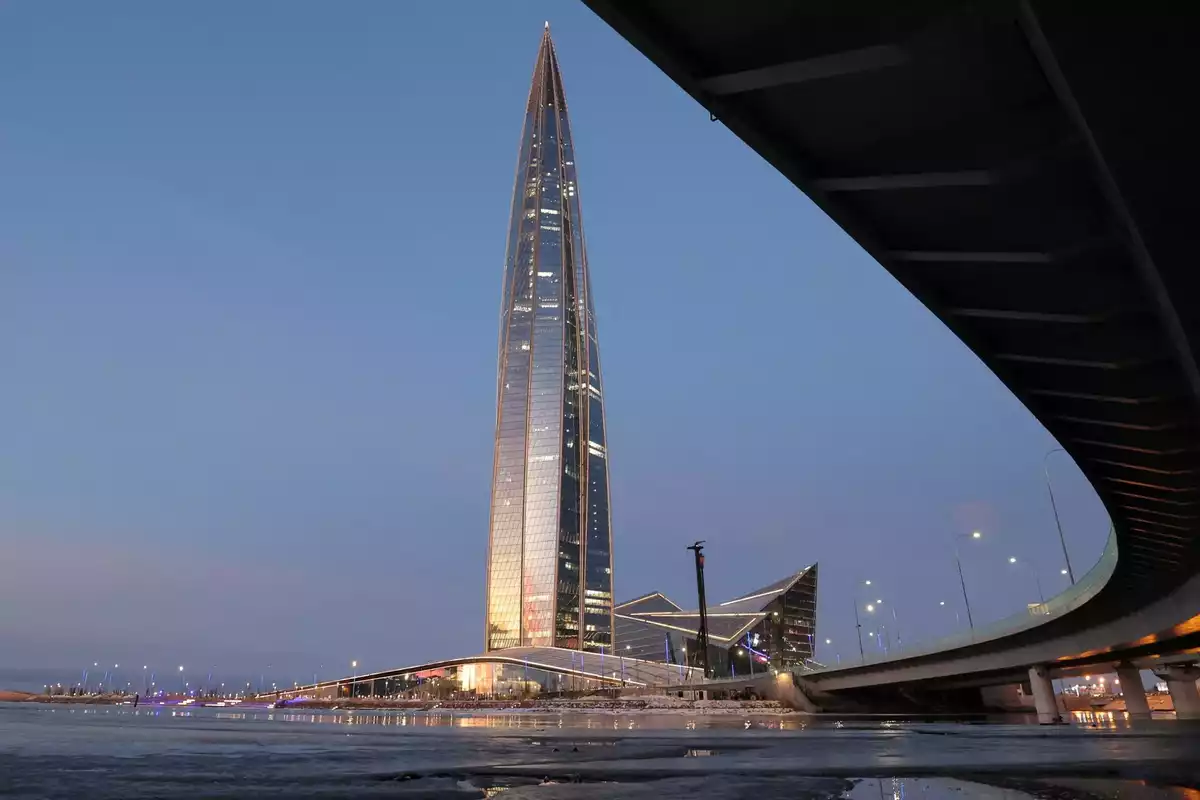
The Lakhta business centre in St Petersburg, which hosts Gazprom's headquarters.Photo: REUTERS/SCANPIX
Russia's Gazprom has withdrawn from an exploration project in Bolivia and a gas field rehabilitation project in Uzbekistan, as the state-controlled gas giant seeks to reduce overheads following the loss of another major export route to Europe in January.
In a disclosure published in the latest issue of the Gazprom corporate journal, the company’s foreign operations subsidiary Gazprom International said it exited the Azero block in Bolivia where it held a 50% operating interest, with France’s TotalEnergies holding the remaining shareholding, The Caspian Post reports citing foreign media.
The 4800 square-kilometre block in the Andes foothills is located on the same gas-bearing trend as the producing Incahuasi gas field and holds an estimated 2 trillion cubic feet or more of natural gas.
Gazprom and TotalEnergies had held stakes in Azero since 2008, but an exploration well drilled to a depth of 5830 metres did not reveal commercial volumes of gas reserves, according to the Russian company's subsidiary.
Despite exiting Azero, Gazprom said it still hold stakes of 20% in the nearby Itapi and Aquio blocks, where TotalEnergies made a major gas discovery in 2004.
“The company fulfilled contractual obligations for geological exploration and gained unique technical and production experience [at Azero block],” Gazprom International said.
Upstream has contacted TotalEnergies in Paris and the company’s regional subsidiary in Bolivia for comment.
Uzbek exit
In Uzbekistan, meanwhile, the Russian company's Gazprom Zarubezhneftegaz subsidiary said in a disclosure note in the corporate journal that it is winding down its operations at the Shakhpakhty gas field, after a production sharing agreement that ended last year was not extended.
The Shakhpakhty PSA was a pilot project for Gazprom, with the contract signed in 2004 as the company started to target upstream opportunities in former Soviet Central Asian republics.
Uzbek state gas producer Uzbekneftegaz operated Shakhpakhty between 1974 and 2002, before idling the deposit.
Production at Shakhpakhty peaked at 360 million cubic metres per annum of gas in 2016, and in 2018 Gazprom Zarubezhneftegaz extended its PSA to 2024.
Gazprom remains operator of the PSA for the neighbouring Dzhel gas and condensate field, with the agreement due to expire in 2044.
After a period of growth in 2023 and 2024, Gazprom’s gas production started dropping again this year after it lost exports of at least 15 billion cubic metres per annum of gas to Europe via Ukraine following the expiry of the gas transit agreement between the two countries on 31 December 2024.
Gazprom has been approached for comment.
Share on social media